
The healing powers of Netflix’s Heartstopper.
As the leader of an LGBTQ+ youth support group, Gary Kopycinski always tells his students: “Live for the best, prepare for the worst.” Enter Heartstopper, a Netflix show about British teenagers grappling with queer love, identity, friendship, and mental health. “It sends the message that the best is possible,” Gary says.
Though Heartstopper centers high schoolers, people of all ages are reveling in the hopeful LGBTQ+ stories. For Gary, 59, the show is a catharsis for moments in his own life growing up gay, like when someone outed him to his family. Watching Heartstopper gives Gary a way to touch and feel that experience again, some 40 years later. “It’s wonderfully therapeutic and healing,” he says. “I kind of cry a little bit for who I was as that young person. But it always brings me back to where I am now, and I just feel better about myself.” Today, Gary has been teaching theology at a Catholic school in Illinois for over 30 years, and has worked to find and create community for queer people like him.
Heartstopper’s healing powers are working. Since season one launched on April 22, 2022, the show has landed in the top spot on Variety’s trending TV chart, earned a 100 percent score on Rotten Tomatoes, and been renewed by Netflix for two more seasons (season two premieres August 3, 2023). Its popularity gave a boost to the four graphic novels the series is based on, which hit numbers 2, 3, 5 and 6 on the New York Times bestsellers list for graphic books and manga last June. It’s a hit, and it’s one that has a message.
As in Alice Oseman’s Heartstopper books, which started as a webcomic of the same name, the show follows Charlie Spring (Joe Locke) and Nick Nelson (Kit Connor) as their friendship develops into something more. Charlie is dealing with the aftermath of being unintentionally outed to the entire school the previous year, while Nick, the stereotypical popular rugby star, starts to realize that he might be different from what everyone expects him to be.
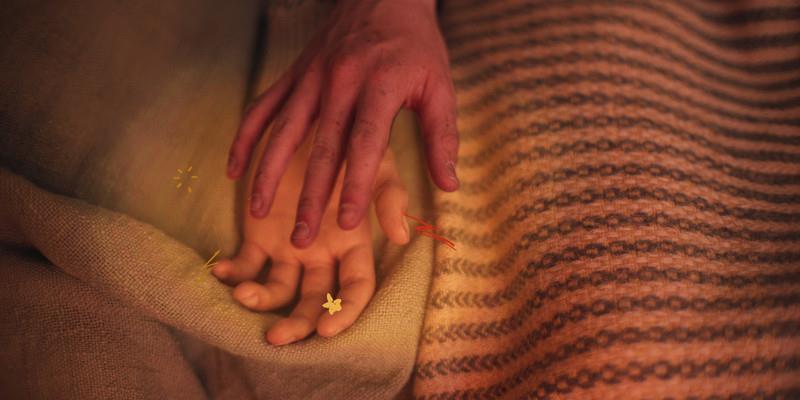
Netflix
Oseman explains her goal in this video on the making of the show: “I want Heartstopper to inspire young people — especially LGBTQ+ young people — to be whoever they want to be, and to believe that they can find happiness and find love and find friendship, because it is a joyful story … everyone can get something out of it.”
She succeeded; Heartstopper resonates with audiences of all ages. For some older fans, though, it’s bittersweet to only now see their lives accurately and positively represented on screen. They can’t help but be a little envious at how different things are, but this Pride, with so many fights for human rights seemingly ahead, it’s a reminder that there’s always more acceptance and understanding to push for. “I look at the healthy ways young people can look at themselves today,” Gary says, “whereas for us, we were in the shadows or desperately trying to stay out of the light.” Now? “It’s a wonderful world that’s becoming possible. And nobody is going to send us back.”
For some viewers, Heartstopper brings mixed emotions
For many people in the LGBTQ+ community, watching shows like Heartstopper that tell queer teen love stories comes with a blend of grief and joy for their younger selves. As the Second Adolescence podcast points out, this mix is likely because people didn’t have those experiences or this level of positive representation in the media when they were growing up.
Watching Heartstopper was an “emotional rollercoaster” for Erik Van Dam, 41. Erik, who lives in the Netherlands and is a member of multiple Heartstopper Facebook groups, says that even though his parents were supportive when he came out, the lack of representation left him feeling at a loss at the time. Representation matters because “the fewer things you see around you that you can relate to, the less you’re going to understand what you are and what you feel,” he said.
Between the anxiety-producing-but-sweet journey of young love, the strong dose of hope infused into tough topics like bullying and mental health, and a sprinkling of animated elements taken from the graphic novels, the show expertly depicts the many struggles of trying to figure yourself out as a teenager. At the same time, it encourages people to embrace who they are instead of hiding — and reminds them not to rush the process.
One particularly relatable scene for Erik is when Nick explains to his longtime friend Imogen, who has a crush on him, why he doesn’t want to go on a date. Sitting on a park bench together with Nick’s dog, he shares: “Do you ever feel like you’re only doing things because everyone else is? And you’re scared to change or do something that might confuse or surprise people? Your real personality has been, like, buried inside you for a really long time?”
Erik felt exactly the same way. “I’ve never heard anyone describe my feelings so perfectly,” he said. Erik put his feelings about coming out behind him in order to move on, but that doesn’t mean that he’d processed them. Until he saw his story told on screen in this way, he wasn’t aware that he needed to heal.
Most of the other main characters are queer, and their equally heartwarming stories are woven throughout the show. Tara and Darcy find out the ups and downs of coming out publicly as a lesbian couple, Elle takes change in stride as she switches from an all-boys school to an all-girls one after coming out as trans, and Tao grows a little too overprotective of his best friend Charlie. And then there’s Isaac, who simply wants to “believe in romance” and read books on the sideline of rugby matches.
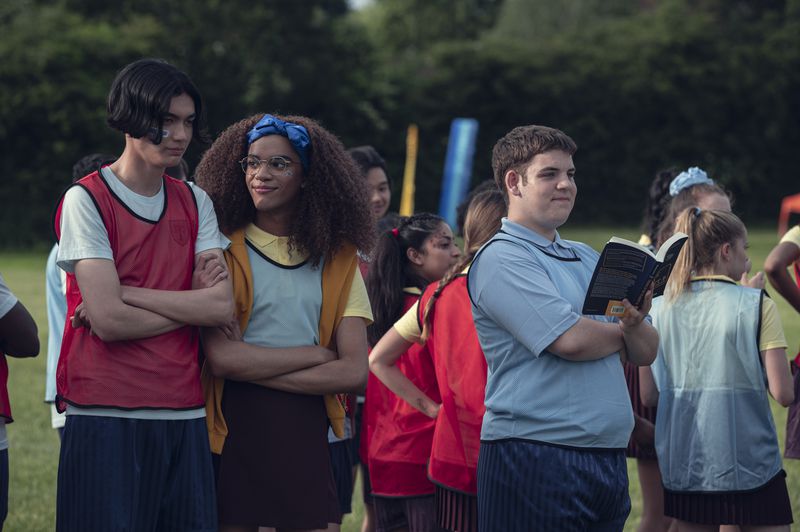
Netflix
Steven Wong, 30, recognizes that Heartstopper is the kind of queer representation that’s needed in the media right now — and also believes the positive tone and relatable characters would’ve had an impact in his life when he was a teenager.
“The show would have been such a positive outlet for me and … [it would’ve] shown me the process of discovering who I am, dealing with bullying, and an idea of what coming out might be like. I probably would’ve been more confident, more open … and probably would’ve come out earlier to my family and friends.”
If Heartstopper existed during his middle school and high school years — when Steven experienced bullying, name-calling, and getting outed on someone else’s terms — he says he would have rewatched the show over and over again. Yes, these are fictional characters. But for Steven, who didn’t see any LGBTQ+ representation as a teenager, it would’ve felt like he had friends.
TJ Hocum, 33, says Heartstopper is one of the first TV shows with queer representation that made him feel seen — and really happy. He was shocked by just how much of an emotional reaction he had to it.
But a few days after TJ watched the show, he felt an overwhelming sense of sadness. “You wish that would have been you when you were younger,” he says. “Because when you’re young, you wanted to be that happy. And for a lot of people my age, we didn’t get that.”
While TJ wishes he had a show like this to watch while growing up, he’s glad one exists today. “I know it would’ve helped me a ton to see these experiences portrayed in such a happy manner. And I’m grateful that there are teens now who have a story like this that will give them hope and show that it’s okay to be different.”
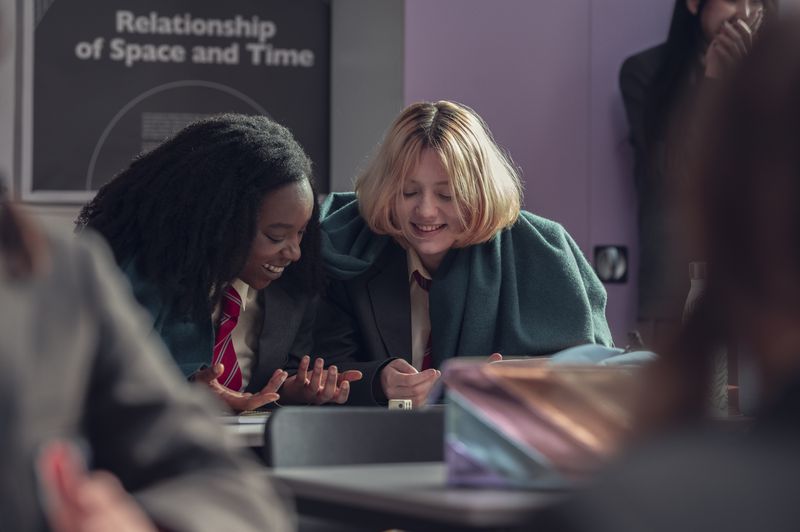
Netflix
The teens are all right
That message immediately came across to the younger audience. The day Heartstopper dropped on Netflix, Esme Calder, 18, used a pivotal scene in the show to come out to their parents. On a recent Zoom call, Esme shared their journey falling in love with the Heartstopper world. They first heard about the books on TikTok last year, and then saved up to buy them. Their initial reaction to the show? “So overwhelming, in a good way.” There’s something about seeing the stories of characters they’d grown to love and identify with on the page, they say, and they’ve never seen that on TV or in a film.
The scene when Nick Nelson comes out to his mom has always been one of Esme’s favorites in the books, and when they came across a cast interview that mentioned a moment in the show that some people might use to come out to their parents, they were tempted to do the same. They sent it to a friend, saying “Can you imagine? I should do that …”
When Esme finally saw the scene, they felt like it would be the perfect moment and decided to go for it. Esme sent a clip of the scene to their parents, watched Heartstopper to relax while waiting for a response — which turned out to be a “very nice” one — and then tweeted about it because, they say, they were proud of themselves and wanted their friends to know about it.
just came out as queer to my parents using nicks coming out scene in the show feeling emotional rn … pic.twitter.com/LKwAEyEWEV
— ez bash’s publicist (@loverneIson) April 22, 2022
In the scene, Nick’s mom’s reaction is sweet, kind, and understanding, as she says, “Thank you for telling me … I’m sorry if I ever made you feel like you couldn’t tell me that.” No negativity. No awkwardness. Only love. This reaction is one of the reasons Esme used the scene to come out. If their parents didn’t know how to react or what to say, they’d have a model of how to behave.
“In a lot of media, when there’s a scene of a queer character coming out, a lot of the time it’s shown to go really poorly. And obviously that can happen,” Esme said. “But it’s equally important to show that it can go well and it can be a really beautiful moment.”
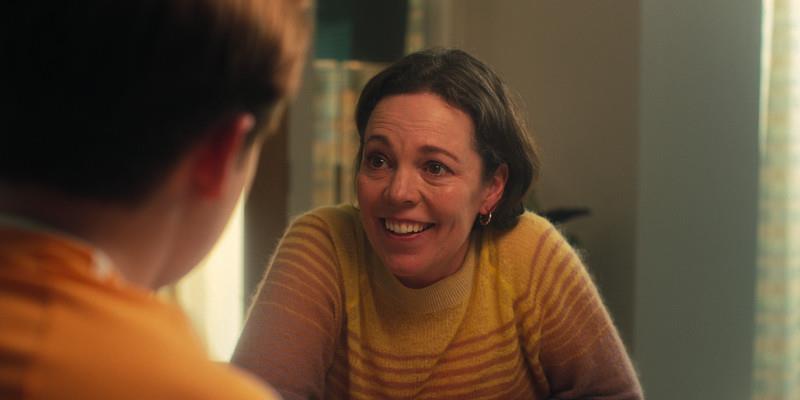
Netflix
Heartstopper’s LGBTQ+ consultant, Jeffrey Ingold, agrees. In an interview, he stresses the importance of seeing your younger self reflected on screen, especially if you were robbed of those experiences when you were younger. Before consulting on TV, Ingold worked as the head of media for LGBTQ+ rights organization Stonewall UK. He was hired to help the actors accurately represent what it’s like to be a queer teenager in school, as well as make sure the crew on set understood the importance of their work for the audience.
“I didn’t get to see two boys in school having a fun, nice time and showing that that was a possibility. If you can’t see that when you’re growing up, you don’t think you can have it. The damage and trauma that can do is a lot, so the hope this show will give to lots of young LGBTQ+ kids is hugely important, and Netflix is going to make sure that that’s seen so widely,” Ingold said.
Older fans are healing their inner child
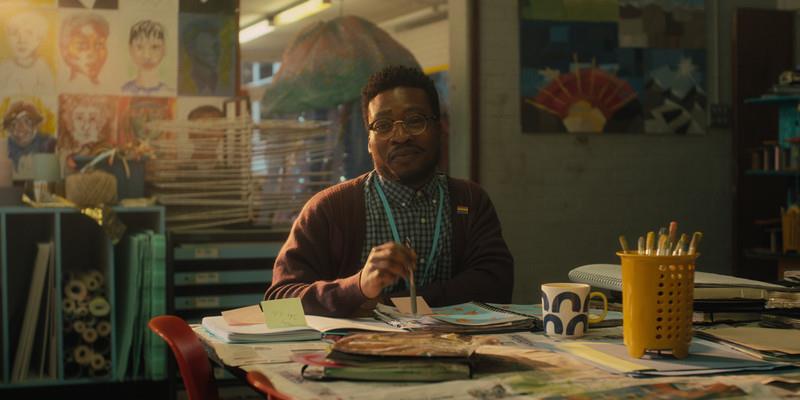
Netflix
Older fans love this show because it maps to universal, timeless feelings and transcends them, soothing their inner child. Everyone wishes they could have had the world Oseman creates: a support system while they explore their sexuality, an understanding art teacher to remind them, “Don’t let anyone let you disappear,” a loyal friend group, and a family that loves them for exactly who they are. Watching Heartstopper is a glimpse into what it would be like to have all of that as a teenager.
Just ask Ana Pinto, who felt “very small” in her teenage years. Now 26, she says the stories in Heartstopper relate to her experiences growing up and coming out as bisexual/queer.
“The pressures and expectations to be a specific kind of person, the fear that you might be rejected by loved ones, the relief when someone you didn’t expect holds you and helps you be who you want to be,” she wrote in an email to Vox, “... all of that made me feel a sense of nostalgia and relatability.”
Ana says she can’t stress enough how much she believes Heartstopper will change LGBTQ+ representation for the better. “Alice created something that is helping older queer kids heal and younger queer kids have a safe place where their identities are seen and understood.”
Seasons one and two of Heartstopper are now streaming on Netflix. You can read the webcomic here and find Oseman’s other work — related to the Heartstopper universe and beyond — here.
Update, August 3, 1:55 pm ET: This story was originally published on June 30, 2022, and has been updated to reflect the release of the second season of Heartstopper.
----------------------------------------
By: Lauren Katz
Title: Why this show about queer teens appeals to all ages — even if it stings
Sourced From: www.vox.com/23188131/heartstopper-netflix-lgbtq-alice-oseman
Published Date: Thu, 03 Aug 2023 18:54:56 +0000
Did you miss our previous article...
https://consumernewsnetwork.com/politics-us/hot-politico-summer-your-guide-to-vacations-with-a-partisan-edge






